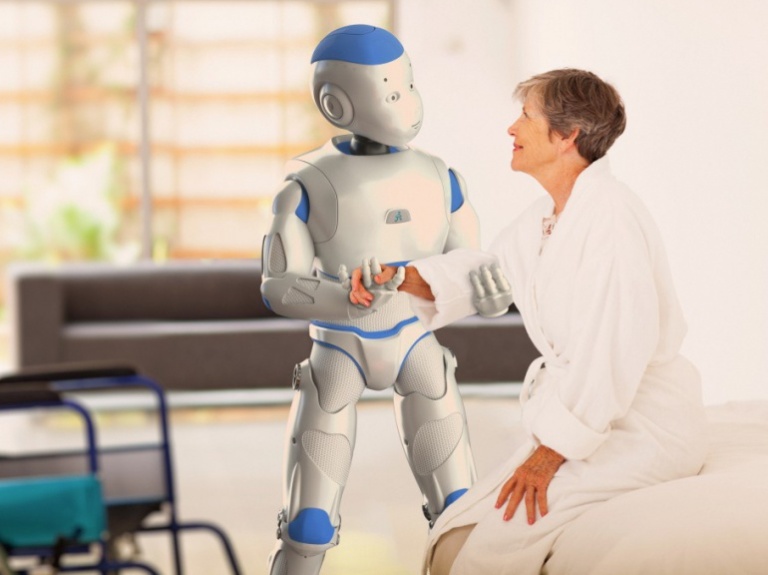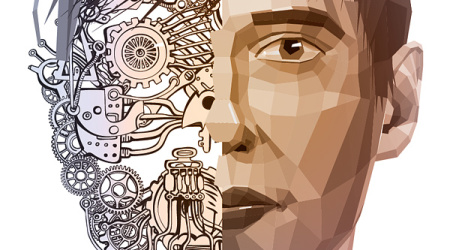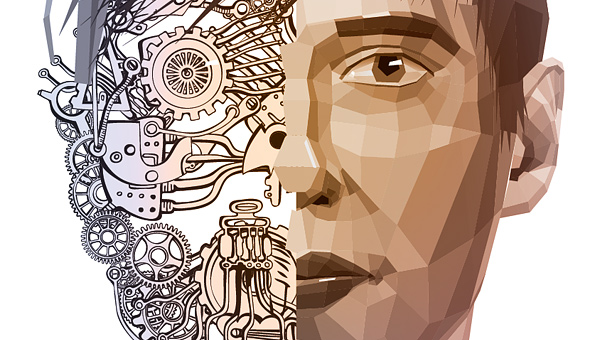PARADOX OF OUR AGE
In an aging society like Japan, it is proposed that the major chunk of caregiving work for the elderly will be provided for by specially designed robots by 2025. Can human touch and presence be replaced by programmed computers even of the most sophisticate nature?
Kabir | The New Leam
Imagine yourself as a helpless infant, cold and lonely in bed crying and wailing for a warm bottle of milk. Your parents and loved ones are nowhere close and no matter how much you wail and cry there will be no human touch to promise you warmth or love. Instead, there is a machine, a robot that picks you up and hands over an artificially heated milk bottle and pushes it through your tiny lips. Perhaps, you wanted more than just a bottle of milk and in fact needed a warm touch, a cuddling hug of unconditional love.

Ironically, no matter how intelligently programmed the robot-nurse at your disposal is not sophisticated enough yet to recognize your emotional needs, your human vulnerabilities. Thus it may be able to immediately associate particular types of sounds made by the helpless human offspring as a demand for milk, or the need to change a wet diaper or even to play a pre-recorded voice message from the parent to calm the infant down however beyond these programed commands, there really is nothing much that these machines can promise.
If we all grew up surrounded by robots and machinery instead of the warmth and physical presence of human beings, the world would have turned into an isolated, lonely and extremely cold milieu. It is time we understood that there is an ethical principle involved in the way that we put technology to use. It should be used in spheres where human beings toil endlessly, where human dignity is put to risk and humanity is threatened. This could include extremely difficult/risky industrial/mining operations, scavenging and sanitary services or other realms of scientific advancement where technology plays an empowering role. This being said, it is also important that we understand that human care and love cannot be replaced by machinery no matter how advanced.
In Japan there is an increasingly growing population disproportion wherein the number of elderly is fast growing and there are not enough young people to look after them. At present in this ageing society there is a shortfall of over 370,000 caregivers and this is only likely to grow until 2025.
In this scenario the elderly population is being suggested to accustom themselves to caregiving by robots. Many kinds of robots have been devised such as those that predict when a frail patient needs to use the loo, helping them get out of bed and onto a wheelchair etc. Many hospitals across Japan have adopted these robots to assist in the absence of human labour force and in the years to come many more hospitals are likely to take up this process.

Japanese healthcare officials see this introduction of robots as a necessary and positive measure that not only takes care of the lack of human help but also helps cut own costs. It is time we understand that human advancement in technology and science are today being taken to an unhealthy trend where we are replacing need by greed. It is also pathological that in the modern age we are feeling that human touch can be replaced by intelligent robots. The love of the mother, the wrinkled smile of a grandparent, the touch of a little child are all emotions and experiences that make a human being feel alive and connected with the larger world. Deprived and devoid of these human sensibilities, human beings too shall become just mechanical robots.
Our world needs the love, the nurturance, the warm and the compassion of real human actors who relate to and care for each other through their presence and time. What would we ourselves become had our parents left us to grow up with robots alone? Today when we make up our mind to give our elderly a lonely life amidst robots, a sense of guilt immediately engulfs me. Where are we so busy that we cannot spare a moment to look after those who gave us our life? Will a programmed robot ever successfully replace a heartfelt conversation, an uninterrupted laughter, a loving touch or the flow of endless tears? Human beings must take a moment to pause and contemplate upon the paradox of our technological obsessions and the kind of future that it is taking all of towards.
The New Leam has no external source of funding. For retaining its uniqueness, its high quality, its distinctive philosophy we wish to reduce the degree of dependence on corporate funding. We believe that if individuals like you come forward and SUPPORT THIS ENDEAVOR can make the magazine self-reliant in a very innovative way.














